5 Last-Minute Easy Hurricane Preparedness Tips
Did you know that Tampa, Florida hasn’t seen a major hurricane in over 100 years? However, that doesn’t mean they shouldn’t be prepared. As hurricane season ramps up, many people are preparing for the worst. But if you still haven’t done anything to prepare, don’t worry – there’s still time! Here are some last-minute hurricane preparedness tips to help you get ready.
Items I Recommend:
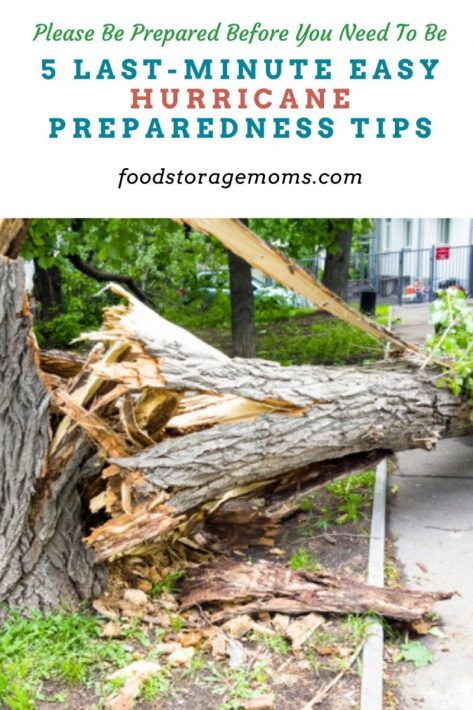
1. Have a plan for hurricane preparedness – know where you will go and what you will do if a hurricane is headed your way.
If you live in an area that is prone to hurricanes, it is important to have a plan for what you will do if one is headed your way. The first step is to track the storm and be aware of its projected path.
If it looks like the hurricane will make landfall near your location, start making preparations. This may include securing loose outdoor items, stocking up on food and water, and filling up your car with gas. Please keep all of your vehicle gas tanks full.
If you have time, you may also want to evacuate to a safe location outside of the hurricane’s path. However, even if you don’t evacuate, it’s important to have a plan for where you will go if your home starts to flood or the power goes out. Knowing what you will do in advance can help to minimize the disruption and keep you safe during a hurricane. Hurricane Items You Must Have Before It Hits
2. Gather your supplies for hurricane preparedness – make sure you have enough food, water, and medicine to last at least 72 hours.
When it comes to emergency preparedness, one of the most important things you can do is gather your supplies ahead of time. That way, if disaster strikes, you’ll be ready. But what should you include in your emergency kit?
At a minimum, you’ll want enough food and water to last for 72 hours. If possible, extend that to a week or more. And don’t forget about medicine. If you or someone in your family has a chronic condition, make sure you have enough medication to last at least a few days. Beyond that, consider other items that could be useful in an emergency situation, such as a first-aid kit, flashlights, a good radio, and batteries.
I’ve never had to do this, but many people cover their windows with plywood or other kinds of wood board. It helps to protect the windows, and YOU, if the wind is so strong it could blow them out. There is also the chance of flying debris that could come through the windows, so strong wood is important.
The bottom line is this: it’s better to be safe than sorry. So take the time now to gather your supplies and put together an emergency kit. It could make all the difference if disaster strikes. Be Prepared for a Hurricane
3. Stay informed – keep track of the latest news and forecasts so you can make decisions based on the most accurate information.
As any prepper knows, information is power. When a hurricane is approaching, it’s essential to stay informed so you can make the best possible decisions for yourself and your family.
The most important thing is to track the latest news and forecasts. This way, you’ll know exactly where the hurricane is headed and what to expect in terms of wind speed, rainfall, and storm surge.
Armed with this knowledge, you can make a plan to evacuate if necessary or hunker down and ride out the storm. Additionally, it’s a good idea to keep an eye on social media for updates from local officials and first responders.
I think having a weather band radio is critical. You can get one that relies on batteries for power, but there are also “crank” radios too. Know where it is so you don’t waste time looking for it. It’s also important to know how to operate the unit, what channels to rely on, and who to respond based on what is reported.
I’ve also suggested to my readers to have walkie-talkies so close family and neighbors can communicate with each other. Again, know how to operate them and agree on what channels to use beforehand.
In an emergency situation, information can be hard to come by, but by staying informed, you can be sure that you’re making the best decisions for yourself and your loved ones. Basic Items To Gather For Any Emergency
4. Evacuate if necessary – don’t wait until the last minute to leave if officials say it’s time to go.
If you live in an area that’s prone to hurricanes, it’s important to know what to do if a storm is headed your way. For one thing, don’t wait until the last minute to evacuate. If officials say it’s time to go, then go. The sooner you get to safety, the better.
Of course, evacuation isn’t always possible. If you can’t leave, then make sure you have a plan for weathering the storm. Have supplies on hand like food, water, and first-aid kits. And be sure to stay informed about the latest forecasts and updates from officials. 10 Things You Should Do Before You Evacuate
5. Help others – if you’re able to, offer help to those who need it during and after the storm.
If you’re able, offer help to those who need it during and after the storm. Whether it’s helping them clean up or just being a shoulder to lean on, your assistance can go a long way. If you have supplies and food to spare, consider donating them to a local shelter or relief organization.
And if you know someone who is elderly or has special needs, check on them to make sure they’re doing okay. We’re all in this together, so let’s help each other out! Should You Tell Others You’re Prepping? Pros & Cons
Tools You Will Need:
- Flashlights or Solar Flashlights
- Lanterns
- Lumber to board up windows
- How To Store Water For Drinking And Cooking
- Canned Foods I Highly Recommend You Store
- Water Filter
- Tools
Final Word
The next time you hear of a hurricane headed your way, there are some last-minute things you can do for hurricane preparedness. These hurricane preparedness tips can help you be prepared and stay prepared. What tips would you share with the world about preparing for a hurricane? May God Bless this world, Linda
The Emergency Food Assistance Program
Copyright Images: Hurricane Broken Trees Depositphotos_176711390_S by Milanchikov

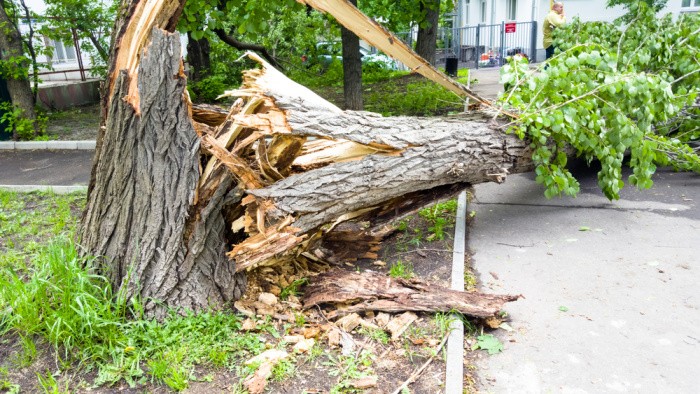


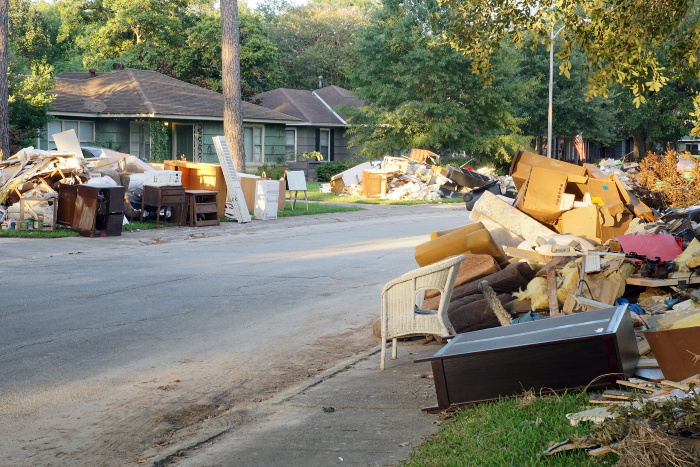
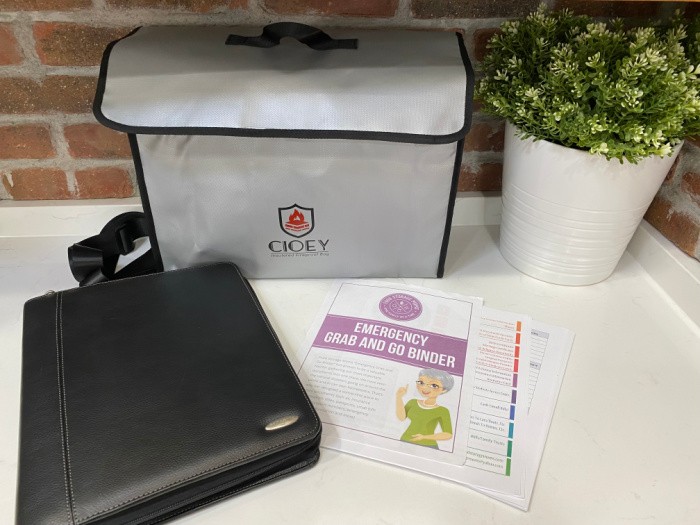

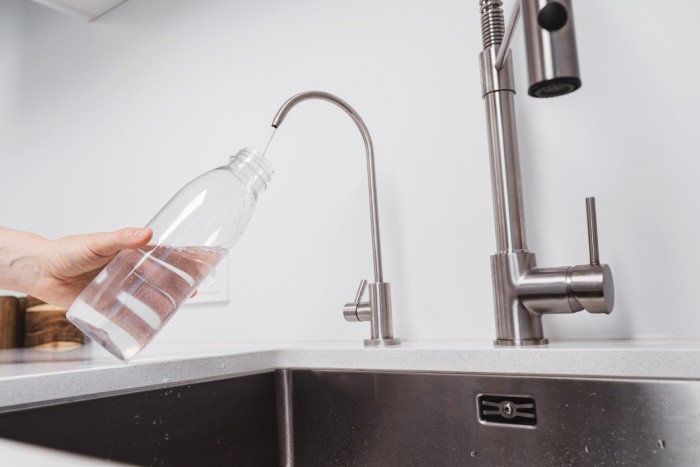
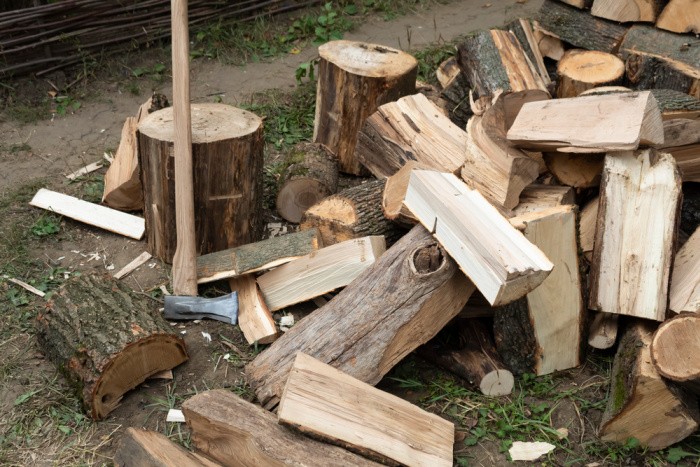


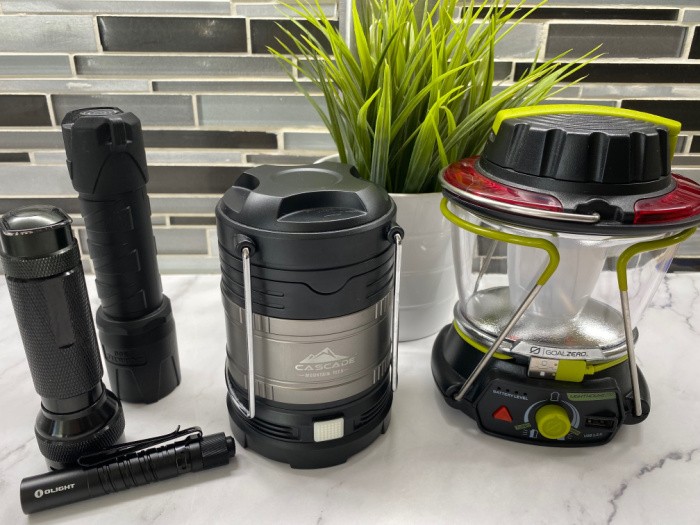
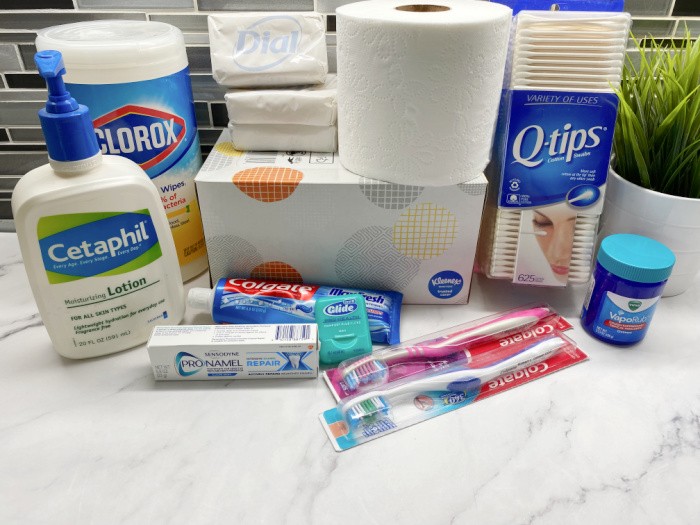
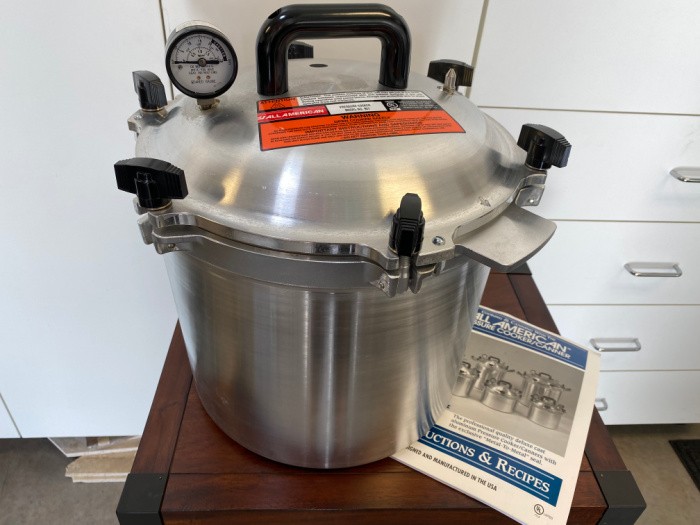
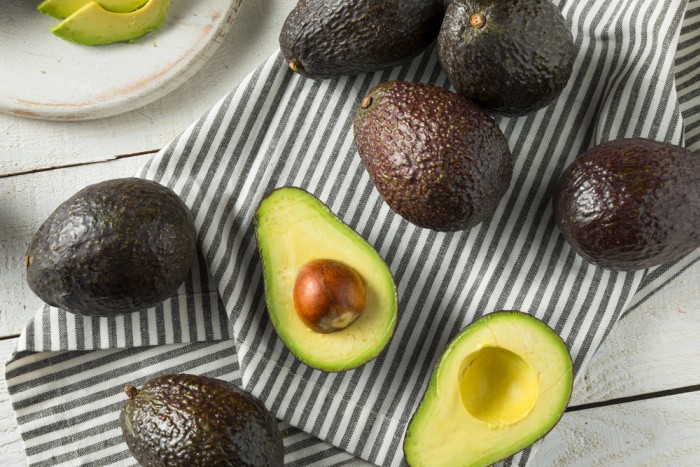



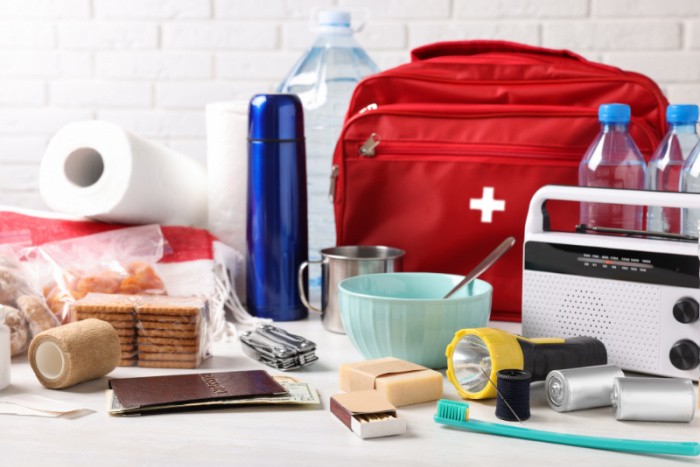
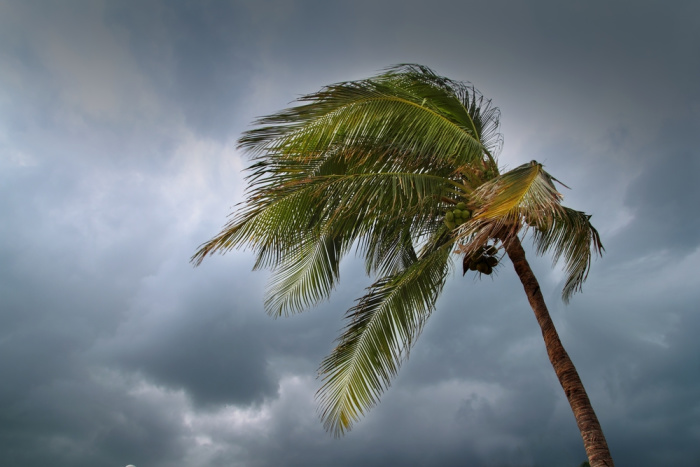
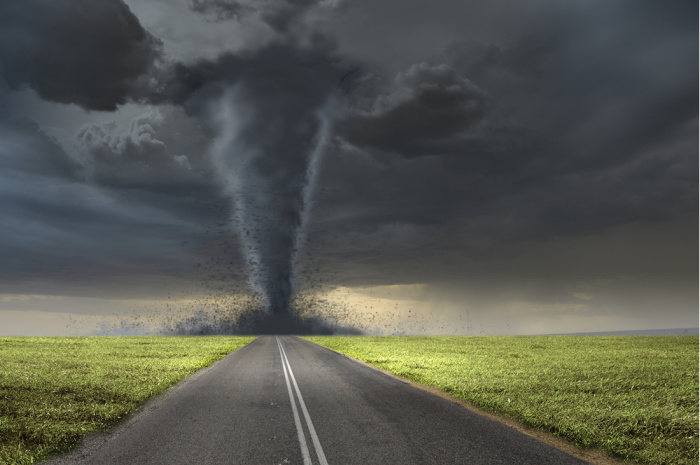


Linda,
As someone who has been through more than his share of hurricanes and tropical storms, you have a great post today. I could tell you tales of my own as well as friends and family experiences with such tropical events that would astonish those who have never experienced them.
With the information available today via the apps on the internet especially live radar, etc., there is no reason for anyone to be trapped in a disastrous tropical event. Storm wind speeds, travel direction and rainfall rates are easily found. Anyone who can manage a smart phone, tablet or computer can easily plan their actions based on the information. I will add that evacuation, even when it turns out it was not necessary, is still the smartest action you can take. And, do it well ahead of landfall to avoid being trapped in snarled traffic at the last minute. And, make sure that you have those 72 hours or more of supplies loaded in your vehicle ahead of time. You may be living in that vehicle for several days. I could go on and on, but people will procrastinate regardless putting themselves in harms way. It is just human nature.
Hi Harry, thanks for the great reminder on the apps, they can help so many people. Thank you for your kind words, my friend. I would love to have you share your experiences and I would make a post for others to see. There is nothing better than real-life experience. Great comment, Linda
As one that lives in a hurricane area, I stress the importance of preparing for hurricanes and they also bring floods and tornados. My husband was a firefighter at the time Hurricane Rita hit in September 2005, (cat 3) and he had to come back the next day after it hit, and told me he had to look for land marks to even find our house. Such devastation he said. I came home a few days later and when I got home I just cried to see so much damage. Fortunately our home was spared but so many lost theirs. In 2017 when Hurricane Harvey was coming, we were told that we would only get 12 inches of water but got 60″. And another thing to consider is not to forget about your elderly.
Hi Judy, oh my gosh, 12 inches expected and you got 60 inches. I have goosebumps on my arms right now. WOW!!!! I can’t imagine coming home after a hurricane to see your home being spared but seeing all the devastation around you. Unless we have lived it we only see the pictures on the news. Those images are horrific to see but in person would be so much worse. Stay safe, Linda
Yes it was horrible seeing trees (2005) all around your home that fell and seeing rain fall (2017) for hours. If our home was not built on beams, water would have been in the house but it did flood under our home. My father who was in construction told me when we were planning on building a home “to get your home up” due to the low elevation where I am at. I will be teaching a hurricane class this week end @ our church and hope there will be good attendance.
Hi Judy, wow, I love hearing you are going to teach a class on hurricanes!! Thank goodness you had your dad who was in the know on building a home ” to get your home up”!! Let’s pray you have a lot of people show up and take heed on being ready for hurricanes!! Linda
A friend of our who lived in Florida had metal crank down covering on all windows and doors. While I am sure they were not cheap, it almost seems like they should be required on all homes. Harry, Judy and any others in these areas, please stay safe.
Hi Chris, I bet they are expensive but in the scheme of things it beats putting up pieces of lumber every time a storm is coming. Linda
Having been thru Hurricane Charlie, which devastated much of Charlotte County, FL and beyond, here are some more tips. Remove everything – and I mean everything – that can blow away or do damage and store in house, garage. That includes door wreaths, pots of plants, hanging plants, door mats, even your hoses! When you have a Cat 4 or 5 hurricane the sustained winds can be 130-156+.
Trim trees, palms, shrubs that touch or overhang your home – they will do damage.
Know your flood probability – we are located in a “green” zone meaning our probability is virtually zero, but street flooding can still occur which may limit ability to evacuate if necessary.
Make sure your vehicles have a full tank of gas.
72 hours of food & water is NOT enough – have at least one full week of food & water for everyone in your home and don’t forget your pets.
Plan on a way to contain/dispose of body waste – 5gal bucket & cat litter/sawdust with first inserting 2 heavy duty garbage bags.
Don’t forget cleaning supplies – heavy duty garbage bags, bleach, sanitizing cloths, rubber gloves – clean up is brutal.
Hi Bellen, thank you for sharing your experience and thoughts on hurricanes! All of these tips will help many people! Thank you so much! Linda
I went to a class last night put on by my county that was financial preparedness for emergencies. FEMA has a book on there website that talks about making sure you have all of you bills and things you would need to get help in one place. We also talked that within the last 10 years the new normal is to have a weeks worth of food medicine, and water on hand incase you can’t find it.
Hi Kristina, I love hearing you went to a class about financial preparedness!! I like the idea of the bills all in one place, I have always done that but it’s a great reminder to all of us. One week is great one month is even better. Let’s hope a lot of people listened to the class! Thank you for sharing, Linda
Great article for people just moving to Florida or any coastal area in the southeast and coastal Texas. I’m a native of Florida and seen my share of Tropical Storms & Hurricanes. I start Hurricane season prepping in April/May. I check my generator and make sure it still fires up and runs. Check my Coleman Lanterns and buy extra fuel if low. Check my battery supply and candle supply. Check my Emergency Food supply.
Hi FLAPrepper1, great comment to remind people to start prepping early! It feels great to have a generator, I’m sure! I love hearing you fire it up to test it and make sure you have extra fuel! Great tips!! Linda
NOAA just released hurricane predictions for 2022, forcasting an above normal hurricane season in the Atlantic with up to 21 named storms this year. Ten storms could become hurricanes with 3 to 6 reaching categories 3,4,or 5. 2022 may become the 7th consecutive above average hurricane season, running June 1 to Nov 30.
Be prepared.
Hi Chris, thank you for the heads up on this information! Yikes! We must all be prepared for sure!! Linda